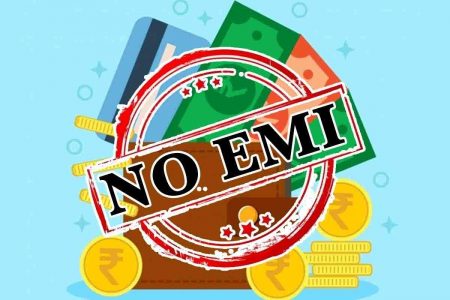
The Reserve Bank of India permitted all the commercial banks, cooperative banks, NBFCs, and all-India Financial Institutions to allow a three-month moratorium period (from 1st March 2020 to 31st May 2020) on all the ongoing term loans.
However, considering the lockdown extensions and continuing COVID-19 disruptions, the RBI further extended the moratorium period for the next three months i.e. from 1st June 2020 to 31st August 2020. The RBI further clarified that the terms and conditions of the extended moratorium period shall remain the same as the previous moratorium period.
The step is taken to deal with the economic slowdown lead due to the coronavirus pandemic. A moratorium is a duration when the borrowers are not required to make any EMI payments for their term loans. It is an option to postpone or defer the EMI payment.
Also Read: COVID-19 Relief Package For MSMEs Under “Atmanirbhar Bharat Abhiyan”
What does a Moratorium Offer to the Borrowers?
Please note that a moratorium is not a waiver or cancellation of the interest amount. The interest will continue to accumulate and will be finally added to the principal outstanding amount. From August 2020, the interest will be calculated on the increased principal amount.
This means the borrowers will ideally end up paying a higher interest from August 2020 onwards. This moratorium includes home loans, auto loans, personal loans, credit cards, education loans, gold loans, and other loans in it.
This Extended Moratorium Will Cover:
The principal or/and interest components
Equated monthly installments
Bulley repayments
Credit card dues
Let’s have a look at how some borrowers take advantage of the extended moratorium period.
Business-to-Business (B2B) loan and credit
What is a business loan? Well, it is unsecured financial support provided by the NBFCs and banks in India. Moreover, many other leading financial institutions have also come forward to support the budding business ideas. The majority of financial institutions offer business loans to cater to the business needs of a company.
Also Read: Pros And Cons of MSME Loans In India
It includes machinery and equipment loans for starting or expanding business operations. B2B loans also include working capital credits like inventory loans, bank overdrafts, accounts receivable financing, and other monetary facilities offered to the business owners. All types of businesses like a sole proprietorship, partnership firms, private companies, retailers, corporate houses, MSMEs, or self-employed individuals can avail B2B loans.
This lockdown has also put some pressure on the fund availability to effectively run a business. Therefore, the Reserve Bank of India has extended the moratorium period to another three months. Adhering to this announcement, the banks will decide upon the effective implementation of the moratorium.
Let’s understand this with an example. If a borrower has a 60-month term loan, his term will increase to 66 months, if he avails moratorium. In the case of the working capital loans, the interest rate will keep on adding and will be due for payment after August 2020.
Also Read: All You Need To Know About The Distinctions In MSMEs
Business-to-Customer (B2C) Loan and Credit
The loans provided to the end customers are called as B2C loans. Majorly banking institutions and other financial companies offer this loan to purchase a house, electronics, vehicle, and so on.
You see, vehicle financing companies and housing financing companies primarily offer and drive customer loans business.B2C loan borrowers primarily include the individuals who are the end customers. Borrowers who have taken a loan from vehicle finance companies or housing finance companies can postpone their EMI payments for three more months.
Also Read: All About Numbers And Targets For MSMEs In India
Similarly, an extended deferment of three months is also given to consumers who have taken loans to purchase personal items. Eventually, the final tenure of all the consumer loans EMI payments will also be extended by three months.
What should a Borrower do to avail the Moratorium?
As mentioned above, the banks will first formulate the moratorium implementation policies before communicating anything with the customers. As of now, the consumers should avoid making any official any declarations for the moratorium. Apart from this, there is no need to cancel the ECS standing instructions towards EMI payments as well. The borrowers should consult their respective banks for more details on this subject.
What is the impact of availing Moratorium?
The Reserve Bank of India has cleared that since a three-month extended moratorium is a relief measure, banks will not report a borrower as a defaulter. Not only this, but there will also be no negative impact on the credit history and credit score of the borrowers. Moreover, the banks will not impose any penalty for the non-repayment of EMI during this period.
Who should Opt for Moratorium?
The borrowers availing moratorium is in the range of 25% to 35%. For the businesses that are experiencing heavy losses and the borrowers who are facing a salary cut, the moratorium option can offer some relief. However, if their current finances permit them to repay their loans, they should avoid taking the additional burden of the moratorium.
Also Read: MSME Loans: The Optimum Choice For Small Industries
Also, the borrowers whose home loans are in initial stages should continue paying their regular EMIs. You see, availing the moratorium can have a larger impact on the total home loan tenure. In the case of multiple loans, they should first do the calculation and understand the financial impact, before making the final decision.
